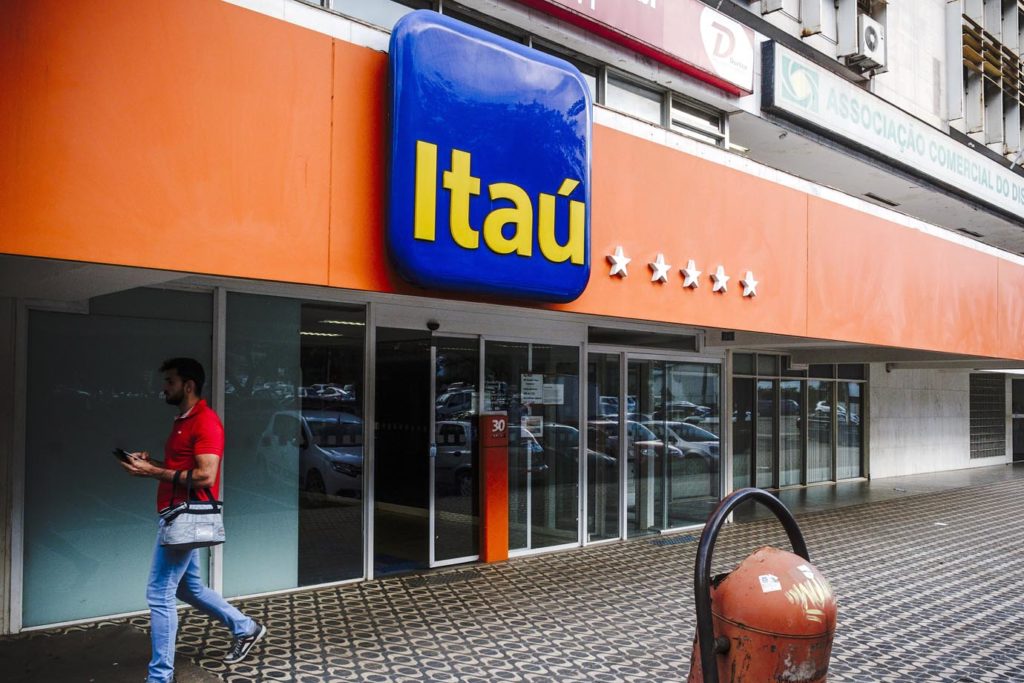RIO DE JANEIRO, BRAZIL – Itaú Unibanco doubled its reserves to R$10.4 billion (US$2 billion) to cover potential default in the first quarter this year.

This increase in reserves – which reached 147.2 percent in the annual comparison – was also behind the pressure on the bank’s profit, which dropped 43.1 percent in the quarterly period to R$3.9 billion.
The bank increased its resources to mitigate the potential economic impacts of the coronavirus crisis. Major banks, which ultimately adopted part of the emergency lines announced by the government to inject money into the economy, had already stated their projections of increased default.
Itaú Unibanco was the third major bank to disclose its results. The first was Santander, which recorded a 10.5 percent increase in first quarter profits (to R$3.9 billion). The second was Bradesco, which also increased its reserves for default and had a 40 percent loss in profit for the period, down R$3.8 billion.
Itaú Unibanco’s default on credit operations in Brazil fell slightly in the first quarter, from 3.7 to 3.5 percent. Default only increased in operations for individuals, from 4.4 to 5.1 percent. According to the bank in a report released on Monday, this occurred due to the increase in the riskier portfolios in the product mix offered.
Itaú’s total credit portfolio for Brazil stood at R$573.7 billion in the period, an increase of 19.4 percent compared to the same three months in 2019. The highlight was micro, small, and medium-sized companies, whose loans grew 31.9 percent to R$104.5 billion.
Part of this increase is the result of the package of measures to inject liquidity (money supply) into the financial system, proposed by the Central Bank, such as the option of loans guaranteed by financial bills to financial institutions and the reduction of compulsory loans (part of the clients’ money that banks must retain in the Central Bank).
In addition, banks are also responsible for 15 percent of total resources – the other 85 percent will be financed by the government – to be loaned through the emergency credit line designed to finance the payroll of small and medium-sized companies (with annual revenues of between R$360,000 and R$10 million). The total credit to be released is R$40 billion.
The portfolio holdings of individuals at Itaú Unibanco increased by 10.4 percent to R$238.1 billion. For large-sized companies it increased by 24.5 percent to R$231.1 billion.
Credit for the largest
At the start of the pandemic, large-sized companies were the first to demand resources in an attempt to have sufficient cash to overcome the pandemic without major setbacks. The search for funds was also intensified by a more restricted and volatile capital market because of the coronavirus.
In Brazil, the bank’s volume of renegotiated credit increased by 13.8 percent to R$25.4 billion. “The increase in the renegotiated credit portfolio occurred mainly due to the lack of products offered to help customers face the impact of the Covid-19 pandemic. Most of this increase occurred in portfolios that were up to date at the time of renegotiation for both individuals and corporations,” the bank said in a report.
The cost of Itaú’s credit also rose in the first quarter, up 165.2 percent to R$10.1 billion. Banks had already mentioned that the higher risk environment and the trend of higher default can also restrict credit and increase interest rates.
According to Itaú, this change in the cost of credit was due to the change in people’s and companies’ financial perspectives from the second half of March.
“The growth in the cost of credit was due to this change, which was achieved by our expected loss provisioning model, which generated higher provisioning expenses at the retail bank and wholesale bank in Brazil, both in the quarterly comparison and in the comparison with the same period of the previous year,” said the bank.
Itaú’s fees and service provision revenues rose 10.4 percent to R$9.5 billion. According to Itaú, given the low exposure to the extent and depth of the impact of the current crisis brought on by the coronavirus pandemic, the projections disclosed to the market (guidance) for 2020 were suspended.
“Management believes it is prudent not to release new projections at this time until we can be more precise on the impacts and extent of the current situation in our operations,” said the bank in a report.
Source: Folhapress

